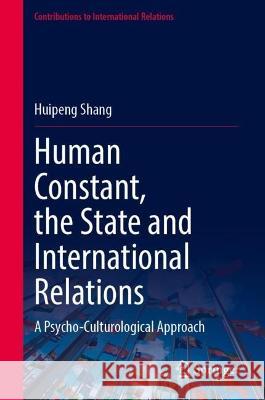People (Jen), State and Inter-state Relations » książka
People (Jen), State and Inter-state Relations
ISBN-13: 9789819961191 / Angielski / Twarda / 2023
This book explores the relationship between the “human constant” (Jen) of the four large-scale civilizational societies—China, the USA, Japan, and India—and their international behavior, response patterns, and interaction with the international system. The book analyzes the characteristics and limitations of the current international system, as well as the way it is related to the Western type of “human constant”. It also analyzes the challenges facing China in its integration into the international system. This book aims to explore international relations from the combined psychological and cultural perspective. The key concept of this book is “Jen”, which contains a distinct Chinese cultural experience, into the theory of international relations. Unlike other IR books to treat state as the main political actor, the book analyzes both the political aspects of state as an “organizational entity” and its civilizational aspects as a “civilizational entity”; hence, it proposes a new ontology of international relations. By integrating the concept of “Jen” based on the unique Chinese cultural experience into the theory of international relations, the book reveals the interactive nature of relationship between the international system and “human constant”. The book explains the causal relationship between state’s behavior and its “human constant”, analyzes the cultural characteristics of state actors and the international system, and tries to provide a new theoretical framework for understanding culture and modernity.











